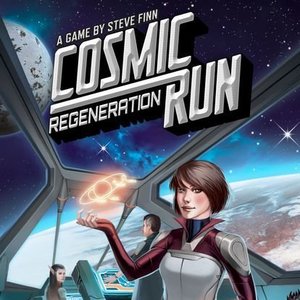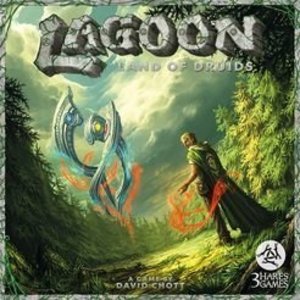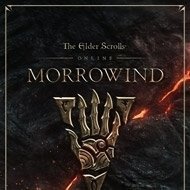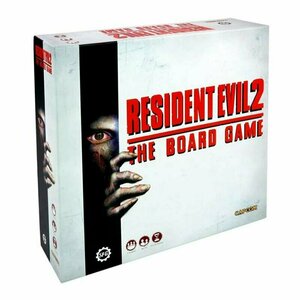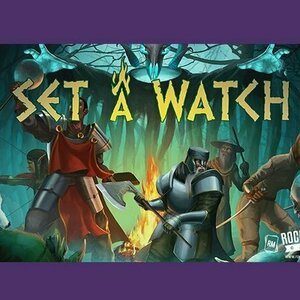Search

Low Player Count
Podcast
Low Player Count is a bi-weekly podcast devoted to thinking about, sometimes reviewing, but mostly...
Purple Phoenix Games (2266 KP) rated Cosmic Run: Regeneration in Tabletop Games
Jun 12, 2019
One of the best parts of the board gaming experience is finding a fun group of people with whom to play! Sometimes, though, coordinating a game night is easier said than done. We all must occasionally forego the group experience and face the world as the Lonely Only. But fear not! The world of solo-play is a vast and exciting realm! What follows is a chronicle of my journey into the solo-playing world – notes on gameplay, mechanics, rules, difficulty, and overall experience with solo variations of commonly multiplayer games! I hope this will provide some insight as you continue to grow your collection, or explore your already owned games!
Space – the Final Frontier. Well, not anymore. You’re living in the year 2123, and space travel is not a novel idea. In fact, Earth has become uninhabitable, and the human race must find a new planet to call home! You and your team of explorers have taken to the galaxies to find a suitable replacement for the future of mankind. By befriending aliens and outmaneuvering rival explorers, your team will be credited with the discovery of new colonies on these distant planets. It’s a literal Space Race, so kick on that hyper-drive and take to the stars!
Cosmic Run: Regeneration is a competitive or cooperative dice-rolling game in which players are racing to earn the most victory points by being the first to discover new planets. It’s a Yahtzee-style push-your-luck game where you must roll certain sets of identical dice to advance your ships on the individual planet tracks. Dice can also be used to ‘hire’ aliens or find crystals, which can give you special abilities once per game. The planets must be discovered in a timely manner, though, because passing meteors could cause damage to, or even completely destroy, these planets – this is space, after all. Players earn victory points in three ways – by being the first to discover a planet, based on their position on a planet’s track if they are not the first to discover it, or by retiring sets of aliens. The player with the most victory points once all 6 planets are discovered is the winner! When playing solo, the game is played essentially the same way, with some minor differences. If the solo player discovers all 6 planets before any one is destroyed or before the meteor deck runs out, they win! However, if even a single planet is destroyed or they are not all discovered before the meteor deck runs out, the solo player loses.
I enjoy playing Cosmic Run: Regeneration as a solo game because it’s simple, but not easy. You’re just rolling dice, but you need a strategy. Do you try to advance quickly on the easiest tracks, or do you commit dice to more difficult tracks and hope that the dice rolls will be on your side? Be careful – once you commit a die to a certain track, it cannot be moved. I’ve played so many games where I commit dice to Planet 2 (2-of-a-kind) and end up rolling 3 more of the same number that could’ve been used on Planet 5 (5-of-a-kind) if I’d just committed them there in the first place! A lot of the game is dependent on the luck of the roll, but I feel like you still need a solid strategy to be successful. There’s a good balance between the two – I still feel like I’m in control of the game even though I can’t control how the dice will roll.
The one main difference between solo and group play is that the solo player is allowed to spend VPs to create ‘forcefields’ around planets. This is because in group play if a planet is destroyed, players score points for their track progress, and the game continues. For the solo player, however, if a planet is destroyed, the game is over. When playing solo, I can choose to spend either 5 or 10 VPs to create a forcefield around either 1 or all planets to protect them from meteors for one turn. Without this option in solo play, it would be impossible to win. The first 4 cards of the meteor deck are guaranteed to hit 4 different planets, so right off the bat you are starting at kind of a disadvantage. Each planet only takes 3 hits to be destroyed, so depending on how well the meteor deck is shuffled, the game would be over quickly if I weren’t able to create forcefields. It all comes back to strategy – you have to decide when to spend those VPs and what planets need protecting at any given point in the game.
That being said, scoring VPs is not really easy in solo play. To score points for a planet, you have to physically reach the planet surface – and that can take a while depending on how well you are rolling. You can hire/retire aliens for VPs, but alien cards have a die cost, so if you are hiring aliens all the time, those are dice you are not using to advance on planet tracks. And each turn, planets get closer to destruction if you don’t advance on their tracks fast enough. You can earn VPs when you land on a VP token space – you do not pick up the token if you pass it, you must land exactly on it. So all in all, you can’t afford to protect every planet every turn. You have to strategize carefully about how to risk your hard-earned VPs. The most frustrating thing is when I pay VPs to protect a planet that isn’t even the one that gets hit! 5 VPs gone that I usually can’t get back in a single turn. But that’s all part of the push-your-luck isn’t it? There’s no reward without risk, and sometimes it’s better to be safe than sorry. I’m usually not a very risky game player, but in this game I have to be. Playing it safe is not an option when I’m racing against the meteor deck.
Cosmic Run: Regeneration is a game of strategy with some healthy helpings of luck and risk-taking. You need a solid strategy, but one that is flexible enough to adapt to your dice rolls on any given turn. No game is a guaranteed win – if I win it’s usually at the last possible second. This game is easy to play, but not necessarily easy to win and that’s what keeps me coming back to play. Even as a solo game, it’s engaging and I think it’s pretty fun too!
https://purplephoenixgames.wordpress.com/2019/01/25/solo-chronicles-cosmic-run-regeneration/
Space – the Final Frontier. Well, not anymore. You’re living in the year 2123, and space travel is not a novel idea. In fact, Earth has become uninhabitable, and the human race must find a new planet to call home! You and your team of explorers have taken to the galaxies to find a suitable replacement for the future of mankind. By befriending aliens and outmaneuvering rival explorers, your team will be credited with the discovery of new colonies on these distant planets. It’s a literal Space Race, so kick on that hyper-drive and take to the stars!
Cosmic Run: Regeneration is a competitive or cooperative dice-rolling game in which players are racing to earn the most victory points by being the first to discover new planets. It’s a Yahtzee-style push-your-luck game where you must roll certain sets of identical dice to advance your ships on the individual planet tracks. Dice can also be used to ‘hire’ aliens or find crystals, which can give you special abilities once per game. The planets must be discovered in a timely manner, though, because passing meteors could cause damage to, or even completely destroy, these planets – this is space, after all. Players earn victory points in three ways – by being the first to discover a planet, based on their position on a planet’s track if they are not the first to discover it, or by retiring sets of aliens. The player with the most victory points once all 6 planets are discovered is the winner! When playing solo, the game is played essentially the same way, with some minor differences. If the solo player discovers all 6 planets before any one is destroyed or before the meteor deck runs out, they win! However, if even a single planet is destroyed or they are not all discovered before the meteor deck runs out, the solo player loses.
I enjoy playing Cosmic Run: Regeneration as a solo game because it’s simple, but not easy. You’re just rolling dice, but you need a strategy. Do you try to advance quickly on the easiest tracks, or do you commit dice to more difficult tracks and hope that the dice rolls will be on your side? Be careful – once you commit a die to a certain track, it cannot be moved. I’ve played so many games where I commit dice to Planet 2 (2-of-a-kind) and end up rolling 3 more of the same number that could’ve been used on Planet 5 (5-of-a-kind) if I’d just committed them there in the first place! A lot of the game is dependent on the luck of the roll, but I feel like you still need a solid strategy to be successful. There’s a good balance between the two – I still feel like I’m in control of the game even though I can’t control how the dice will roll.
The one main difference between solo and group play is that the solo player is allowed to spend VPs to create ‘forcefields’ around planets. This is because in group play if a planet is destroyed, players score points for their track progress, and the game continues. For the solo player, however, if a planet is destroyed, the game is over. When playing solo, I can choose to spend either 5 or 10 VPs to create a forcefield around either 1 or all planets to protect them from meteors for one turn. Without this option in solo play, it would be impossible to win. The first 4 cards of the meteor deck are guaranteed to hit 4 different planets, so right off the bat you are starting at kind of a disadvantage. Each planet only takes 3 hits to be destroyed, so depending on how well the meteor deck is shuffled, the game would be over quickly if I weren’t able to create forcefields. It all comes back to strategy – you have to decide when to spend those VPs and what planets need protecting at any given point in the game.
That being said, scoring VPs is not really easy in solo play. To score points for a planet, you have to physically reach the planet surface – and that can take a while depending on how well you are rolling. You can hire/retire aliens for VPs, but alien cards have a die cost, so if you are hiring aliens all the time, those are dice you are not using to advance on planet tracks. And each turn, planets get closer to destruction if you don’t advance on their tracks fast enough. You can earn VPs when you land on a VP token space – you do not pick up the token if you pass it, you must land exactly on it. So all in all, you can’t afford to protect every planet every turn. You have to strategize carefully about how to risk your hard-earned VPs. The most frustrating thing is when I pay VPs to protect a planet that isn’t even the one that gets hit! 5 VPs gone that I usually can’t get back in a single turn. But that’s all part of the push-your-luck isn’t it? There’s no reward without risk, and sometimes it’s better to be safe than sorry. I’m usually not a very risky game player, but in this game I have to be. Playing it safe is not an option when I’m racing against the meteor deck.
Cosmic Run: Regeneration is a game of strategy with some healthy helpings of luck and risk-taking. You need a solid strategy, but one that is flexible enough to adapt to your dice rolls on any given turn. No game is a guaranteed win – if I win it’s usually at the last possible second. This game is easy to play, but not necessarily easy to win and that’s what keeps me coming back to play. Even as a solo game, it’s engaging and I think it’s pretty fun too!
https://purplephoenixgames.wordpress.com/2019/01/25/solo-chronicles-cosmic-run-regeneration/
Paul Kellett (118 KP) created a poll about in Solo Gamers
May 9, 2019
James Wadsworth (0 KP) rated the Xbox One version of PlayerUnknown’s Battlegrounds in Video Games
Jul 8, 2018
Game play (1 more)
Optional teamwork (duo or squad)
Lags (1 more)
Still being developed on xbox
Contains spoilers, click to show
Really great game really fun to play on your own or with friends has the opportunity to play solo, duo or squad which is 4 people, still being developed on the xbox so obviously has a few flaws like lags and things but otherwise really fun to play and the more you play the better you get and more addicted you get aha
Purple Phoenix Games (2266 KP) rated Lagoon: Land of Druids in Tabletop Games
Jun 12, 2019
One of the best parts of the board gaming experience is finding a fun group of people with whom to play! Sometimes, though, coordinating a game night is easier said than done. We all must occasionally forego the group experience and face the world as the Lonely Only. But fear not! The world of solo-play is a vast and exciting realm! What follows is a chronicle of my journey into the solo-playing world – notes on gameplay, mechanics, rules, difficulty, and overall experience with solo variations of commonly multiplayer games! I hope this will provide some insight as you continue to grow your collection, or explore your already owned games!
Lagoon is a land of harmony and balance. Or at least it WAS until the rise of humanity. The three spiritual energies that once existed in a perfect equilibrium are now fighting for dominance and control over the destiny of Lagoon. Each energy has amassed a following of druids who are working to ensure that their chosen energy is victorious! Which energy will you choose to serve, and will your choice be the correct one in the end? There’s only one way to find out!
Lagoon: Land of the Druids is a game of tile placement and exploration. You are the leader of a circle of druids, and they will do your bidding throughout the game. On your turn, you will take any/all of these five actions: Move, Summon (add one of your reserve druids to the play area), Explore (add a new site tile to the table), Invoke (use a Site Action), or Unravel (remove a site tile from play). You can perform as many of these actions as you want, as long as you have the appropriate resources to spend. Each tile in the game is double-sided, and each side has a unique action/ability associated with it. Strategy is everything – which tile side should you choose to bring into play, and how can you best use the available abilities to benefit your chosen energy? You also have to keep an eye on your opponents because they might be trying to undermine your plans to help their energy achieve success! The game ends when all tiles have been explored, and then players count up points dependent upon which energy was ultimately dominant. The player with the most points is the winner!
As a solo game, Lagoon plays similarly to the multi-player game. Instead of competing against other humans, you are playing against an AI opponent (fondly referred to as “AJ” in the rulebook). On its turn, alternating with yours, the AI executes three steps – Explore, Unravel, and Invoke (perform an action dependent on which druids the AI currently has in play). Each of those steps is explained in more detail in the rulebook. The game ends as in a normal group game, and the player (either you or the AI) with the highest score wins.
The first thing I should mention are the solo rules themselves – they are very wordy and contain lots of ambiguity. It took me a couple of read-throughs before I felt comfortable trying to play, and even now I still keep the solo rules easily accessible when I do play. With so many moving elements in this game, clear and concise rules are necessary for an unencumbered game.
When I say there are a lot of moving elements, I mean it. At any point, you could have up to 5 druids in play, with access to up to 5 unique site powers to invoke in addition to the basic actions you can take on your turn. And on top of that, your druids are spiritually connected, so a druid on one site can use the power of a different site as long as you have a druid there as well. There are also lots of opportunities to combo powers this way, and unless you’re 100% focused, you could lose track of what you already did or forget to pay for an action. And in a solo game, you’re not only tracking this for yourself, you also have to make sure you’re executing the AI turns correctly. There’s just a lot going on and it can be easy to accidentally skip a step.
The thing I dislike most about playing Lagoon solo is that I have to make decisions for the AI. When placing tiles on AI turns, I get to choose which side to play. When the AI unravels a site, I get to choose which site to remove. It’s hard to play this game honestly because I can just choose whatever will benefit ME the most, and not necessarily act in the AI’s best interest. Obviously, a human opponent would do whatever they want for themselves, but in a solo game I am in control of my opponent. The rulebook does offer ways to alleviate this, but I either honestly forget to refer back to the rules for certain situations, or I just choose to ignore the suggestions. I know, I know, that sounds like a personal problem. And I guess it is. I just don’t like the responsibility of having to play two competing sides because it is hard to stay honest. Since this game is so dependent on strategy and personal decisions, there is no good way for an AI opponent to be successful.
Lagoon: Land of the Druids is a complex game that requires more strategy than you think. That being said, I don’t like to play it solo. Each turn offers lots of opportunities, but so many options can be overwhelming. Having to make decisions for the AI is not enjoyable for me because I am aware that I do not always make the best decision for the AI – it’s just hard for me to consciously make decisions detrimental to my game. The idea of this game is neat, but the execution of the solo rules (from their editing to their actual gameplay) just doesn’t work well for me. Give it a try solo if you want, but you’re not really missing a lot if you don’t.
https://purplephoenixgames.wordpress.com/2019/03/11/solo-chronicles-lagoon-land-of-the-druids/
Lagoon is a land of harmony and balance. Or at least it WAS until the rise of humanity. The three spiritual energies that once existed in a perfect equilibrium are now fighting for dominance and control over the destiny of Lagoon. Each energy has amassed a following of druids who are working to ensure that their chosen energy is victorious! Which energy will you choose to serve, and will your choice be the correct one in the end? There’s only one way to find out!
Lagoon: Land of the Druids is a game of tile placement and exploration. You are the leader of a circle of druids, and they will do your bidding throughout the game. On your turn, you will take any/all of these five actions: Move, Summon (add one of your reserve druids to the play area), Explore (add a new site tile to the table), Invoke (use a Site Action), or Unravel (remove a site tile from play). You can perform as many of these actions as you want, as long as you have the appropriate resources to spend. Each tile in the game is double-sided, and each side has a unique action/ability associated with it. Strategy is everything – which tile side should you choose to bring into play, and how can you best use the available abilities to benefit your chosen energy? You also have to keep an eye on your opponents because they might be trying to undermine your plans to help their energy achieve success! The game ends when all tiles have been explored, and then players count up points dependent upon which energy was ultimately dominant. The player with the most points is the winner!
As a solo game, Lagoon plays similarly to the multi-player game. Instead of competing against other humans, you are playing against an AI opponent (fondly referred to as “AJ” in the rulebook). On its turn, alternating with yours, the AI executes three steps – Explore, Unravel, and Invoke (perform an action dependent on which druids the AI currently has in play). Each of those steps is explained in more detail in the rulebook. The game ends as in a normal group game, and the player (either you or the AI) with the highest score wins.
The first thing I should mention are the solo rules themselves – they are very wordy and contain lots of ambiguity. It took me a couple of read-throughs before I felt comfortable trying to play, and even now I still keep the solo rules easily accessible when I do play. With so many moving elements in this game, clear and concise rules are necessary for an unencumbered game.
When I say there are a lot of moving elements, I mean it. At any point, you could have up to 5 druids in play, with access to up to 5 unique site powers to invoke in addition to the basic actions you can take on your turn. And on top of that, your druids are spiritually connected, so a druid on one site can use the power of a different site as long as you have a druid there as well. There are also lots of opportunities to combo powers this way, and unless you’re 100% focused, you could lose track of what you already did or forget to pay for an action. And in a solo game, you’re not only tracking this for yourself, you also have to make sure you’re executing the AI turns correctly. There’s just a lot going on and it can be easy to accidentally skip a step.
The thing I dislike most about playing Lagoon solo is that I have to make decisions for the AI. When placing tiles on AI turns, I get to choose which side to play. When the AI unravels a site, I get to choose which site to remove. It’s hard to play this game honestly because I can just choose whatever will benefit ME the most, and not necessarily act in the AI’s best interest. Obviously, a human opponent would do whatever they want for themselves, but in a solo game I am in control of my opponent. The rulebook does offer ways to alleviate this, but I either honestly forget to refer back to the rules for certain situations, or I just choose to ignore the suggestions. I know, I know, that sounds like a personal problem. And I guess it is. I just don’t like the responsibility of having to play two competing sides because it is hard to stay honest. Since this game is so dependent on strategy and personal decisions, there is no good way for an AI opponent to be successful.
Lagoon: Land of the Druids is a complex game that requires more strategy than you think. That being said, I don’t like to play it solo. Each turn offers lots of opportunities, but so many options can be overwhelming. Having to make decisions for the AI is not enjoyable for me because I am aware that I do not always make the best decision for the AI – it’s just hard for me to consciously make decisions detrimental to my game. The idea of this game is neat, but the execution of the solo rules (from their editing to their actual gameplay) just doesn’t work well for me. Give it a try solo if you want, but you’re not really missing a lot if you don’t.
https://purplephoenixgames.wordpress.com/2019/03/11/solo-chronicles-lagoon-land-of-the-druids/

The Lost Expedition
Tabletop Game
Description from the publisher: Legendary explorer Percy Fawcett marched deep into the Amazon in...

Bon.Club - Sòng Bài Hoàng Gia
Games
App
"BON CLUB – Trải nghiệm thế giới Game Bài – Game Slot đỉnh cao! Với những tính...
Mothergamer (1616 KP) rated the PlayStation 4 version of The Elder Scrolls Online: Morrowind in Video Games
May 19, 2018
Adds a lot of good content with interesting quests and stories. I always have fun playing this with my friends whether it's exploring different areas together or just working on crafting. There's a lot to do in the game solo or with other players. I play this on the PC and Playstation 4 and have a lot of fun.
Otway93 (580 KP) rated Resident Evil 2: The Board Game in Tabletop Games
Oct 25, 2019
Game (4 more)
Pieces
Expansions Available
1-4 Players
Tension
Cost (1 more)
Packaging
Excellent game, though far too expensive!
A truly superb game that thoroughly surprised me!
At first I was a little sceptical about how Resident Evil 2 would translate to a board game, but the creators managed to capture the story and the horror perfectly, somehow making everybody involved absolutely terrified, just like the game!
The game is slightly complicated for those new to dice based games (me included), but I believe it to be an excellent starter for beginners.
The game is also unusually for 1-4 players, though I can't imagine it being much fun solo.
Another plus is the number of expansions, all enjoyable, but just like the core game, they are all considerably expensive for what's involved.
The cost is the main issue with this game, the core game costing between £60-80, and expansions anywhere between £15-30 each.
The expansions, with the exception of the rather good B-Files Expansion, contain very little, and add very little. They contain very little and still use the same amount of packaging, using a lot of plastic and wasting paper and cardboard.
At first I was a little sceptical about how Resident Evil 2 would translate to a board game, but the creators managed to capture the story and the horror perfectly, somehow making everybody involved absolutely terrified, just like the game!
The game is slightly complicated for those new to dice based games (me included), but I believe it to be an excellent starter for beginners.
The game is also unusually for 1-4 players, though I can't imagine it being much fun solo.
Another plus is the number of expansions, all enjoyable, but just like the core game, they are all considerably expensive for what's involved.
The cost is the main issue with this game, the core game costing between £60-80, and expansions anywhere between £15-30 each.
The expansions, with the exception of the rather good B-Files Expansion, contain very little, and add very little. They contain very little and still use the same amount of packaging, using a lot of plastic and wasting paper and cardboard.
Purple Phoenix Games (2266 KP) rated Set a Watch in Tabletop Games
Sep 26, 2019
Purple Phoenix Games Solo Chronicles
I love a good fantasy-themed game. We’ve all, at some point in our lives, probably dreamed of being adventurers – traveling across the land, fighting monsters, and saving all of humanity. Sounds like it could maybe be fun to me. So whenever I see a game that emulates that theme, I am drawn to it. Such was definitely the case when I stumbled across Set a Watch as I was perusing Kickstarter one day, and the rest is history.
The kingdom is under attack. Hoards of creatures are amassing at locations around the realm in an attempt to resurrect ancient Unhallowed monsters. Their ultimate goal? To take control of the world. You and your fellow adventurers have been tasked with stopping this uprising. By traveling to these various locations, you will attempt to clear the area of evil-doers and maintain peace in the kingdom. Keep a vigilant watch, and your team will be successful. But if you wane for even a moment, all could be lost.
DISCLAIMER: This review uses the Deluxe version of Set a Watch that we backed on Kickstarter. Some components may differ from components found other versions. -T
Set A Watch is a cooperative game for 1-4 players in which players must secure nine locations around the realm to prevent the release of the deadly Unhallowed monsters. The party always consists of 4 adventurers, regardless of actual player count. In each round, one adventurer will stay back at camp, resting and taking strategic actions, while the other 3 adventurers take watch and fight off the creatures attempting to infiltrate the camp by using special abilities and powers to aid in battle. The game ends in victory if the adventurers have successfully secured all locations. If, at the end of a round, all adventurers on watch are exhausted, the camp is overrun and the game is lost.
So how does solo play differ from multiplayer games? It doesn’t! A solo game of Set A Watch plays identically to a multiplayer game – the solo player just controls all 4 adventurers at once instead of being split up among the players. Obviously, as a solo player, you have to make all of the decisions, which is sometimes nicer than playing with other people. You get to play whatever strategy YOU want to, without having to compromise with other players. On the flip side, that could be treacherous if your strategy is too bold/too meek or if you get in a tight spot and are at a loss for what to do next. Other than the aspect of solo decision-making, the gameplay remains unchanged. One adventurer still rests at camp while the other 3 stand watch and battle monsters.
Typically, I am not a fan of solo games in which you are forced to play multiple characters. That just feels like kind of a cop-out way to say ‘Yeah, we have a solo mode’ when in reality you’re still playing a multiplayer game, just by yourself. That being said, I actually don’t mind this aspect in Set A Watch. Why? Because there really are no ‘turns’ to track. One adventurer stays at camp and acts first, but the other 3 go to battle and act whenever/however they want. There is no real turn order. I make the characters act when and how I want them to, and that really opens the rounds up to a lot of freedom. I don’t have to sacrifice special powers/abilities because it wasn’t that character’s ‘turn’ – I can come up with some sweet combos, utilizing whichever characters I need to, to really do some damage. The lack of turns makes this a truly cooperative game, even when playing solo.
Overall, I love Set A Watch. It was, admittedly, a little intimidating at first, but once I got the hang of it, it plays great! The components are nice and sturdy, the box transforms into the game board, and the artwork is very nicely done. Set A Watch is a game I would definitely play either multiplayer or solo, and not as a last resort. The gameplay is engaging, the strategic options give you a different game every play, and the theme itself is just exciting to me. I am very happy with this Kickstarter purchase, and I look forward to any expansions/reimplementations that could be in the works!
The kingdom is under attack. Hoards of creatures are amassing at locations around the realm in an attempt to resurrect ancient Unhallowed monsters. Their ultimate goal? To take control of the world. You and your fellow adventurers have been tasked with stopping this uprising. By traveling to these various locations, you will attempt to clear the area of evil-doers and maintain peace in the kingdom. Keep a vigilant watch, and your team will be successful. But if you wane for even a moment, all could be lost.
DISCLAIMER: This review uses the Deluxe version of Set a Watch that we backed on Kickstarter. Some components may differ from components found other versions. -T
Set A Watch is a cooperative game for 1-4 players in which players must secure nine locations around the realm to prevent the release of the deadly Unhallowed monsters. The party always consists of 4 adventurers, regardless of actual player count. In each round, one adventurer will stay back at camp, resting and taking strategic actions, while the other 3 adventurers take watch and fight off the creatures attempting to infiltrate the camp by using special abilities and powers to aid in battle. The game ends in victory if the adventurers have successfully secured all locations. If, at the end of a round, all adventurers on watch are exhausted, the camp is overrun and the game is lost.
So how does solo play differ from multiplayer games? It doesn’t! A solo game of Set A Watch plays identically to a multiplayer game – the solo player just controls all 4 adventurers at once instead of being split up among the players. Obviously, as a solo player, you have to make all of the decisions, which is sometimes nicer than playing with other people. You get to play whatever strategy YOU want to, without having to compromise with other players. On the flip side, that could be treacherous if your strategy is too bold/too meek or if you get in a tight spot and are at a loss for what to do next. Other than the aspect of solo decision-making, the gameplay remains unchanged. One adventurer still rests at camp while the other 3 stand watch and battle monsters.
Typically, I am not a fan of solo games in which you are forced to play multiple characters. That just feels like kind of a cop-out way to say ‘Yeah, we have a solo mode’ when in reality you’re still playing a multiplayer game, just by yourself. That being said, I actually don’t mind this aspect in Set A Watch. Why? Because there really are no ‘turns’ to track. One adventurer stays at camp and acts first, but the other 3 go to battle and act whenever/however they want. There is no real turn order. I make the characters act when and how I want them to, and that really opens the rounds up to a lot of freedom. I don’t have to sacrifice special powers/abilities because it wasn’t that character’s ‘turn’ – I can come up with some sweet combos, utilizing whichever characters I need to, to really do some damage. The lack of turns makes this a truly cooperative game, even when playing solo.
Overall, I love Set A Watch. It was, admittedly, a little intimidating at first, but once I got the hang of it, it plays great! The components are nice and sturdy, the box transforms into the game board, and the artwork is very nicely done. Set A Watch is a game I would definitely play either multiplayer or solo, and not as a last resort. The gameplay is engaging, the strategic options give you a different game every play, and the theme itself is just exciting to me. I am very happy with this Kickstarter purchase, and I look forward to any expansions/reimplementations that could be in the works!
